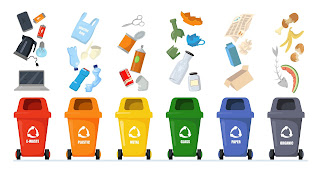Understanding The Complexities of Recycling: Facts and Tips
Recycling is a multifaceted process influenced by global materials markets, local regulations, and consumer behavior. As consumers, our choices significantly impact whether and how materials get recycled. However, navigating the intricacies of recycling in your city or town can be daunting. This article aims to shed light on key recycling facts and provide practical tips for effective recycling.
The Dynamics of Recycling
Global Materials Markets: Recycling is not just about separating materials; it's also driven by market demand. Prices for recyclables fluctuate based on global supply and demand dynamics. For example, the value of recycled materials like aluminum and cardboard can vary significantly, affecting their recycling feasibility.
Local Regulations: Each locality has its own recycling rules and guidelines. What may be recyclable in one city might not be in another. Understanding your local recycling program is crucial to ensure that your efforts are effective and compliant with local laws.
Consumer Behavior: Perhaps the most critical aspect of recycling is consumer participation. Proper sorting, cleaning, and disposal of recyclables are essential. Mismanaged recycling, such as contamination with non-recyclable materials, can undermine the entire recycling process.
Surprising Recycling Facts
Recycling Saves Energy: Recycling materials like aluminum, paper, and glass saves a significant amount of energy compared to producing them from raw materials. For instance, recycling aluminum can save up to 95% of the energy required for virgin aluminum production.
Not All Plastics Are Recyclable: Despite the universal recycling symbol, not all plastics are recyclable in every area. Check local guidelines to see which types of plastics are accepted in your recycling program.
E-Waste Requires Special Handling: Electronic waste (e-waste) contains hazardous materials and must be recycled separately from regular household waste. Many communities offer specific e-waste recycling programs to ensure safe disposal.
Contamination Is a Major Issue: Contaminants like food waste and non-recyclable materials can render entire batches of recyclables unusable. Properly rinse containers and follow local guidelines to minimize contamination.
Tips for Effective Recycling
Know Your Local Guidelines: Familiarize yourself with what can and cannot be recycled in your area. Check with your local waste management authority or visit their website for detailed information.
Clean and Sort: Rinse containers before recycling to prevent contamination. Separate materials according to local guidelines to ensure they are recycled correctly.
Reduce and Reuse: Recycling is important, but reducing consumption and reusing items whenever possible are even more effective ways to minimize waste.
Educate Others: Spread awareness about recycling practices among friends, family, and colleagues. Encourage others to participate in recycling programs to maximize their impact.
Conclusion
Recycling plays a pivotal role in conserving resources and reducing environmental impact. By understanding the complexities of recycling and adhering to best practices, consumers can contribute significantly to a sustainable future. Remember, every effort counts towards creating a cleaner and greener planet for generations to come.



Comments
Post a Comment